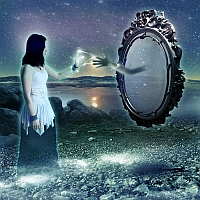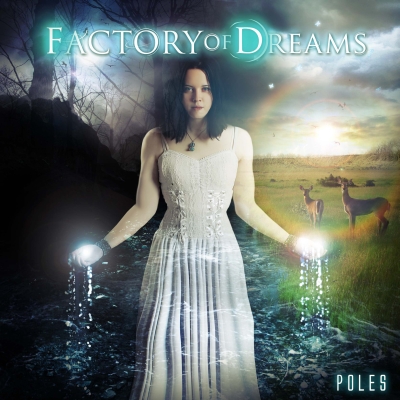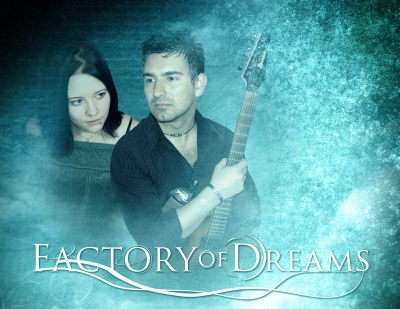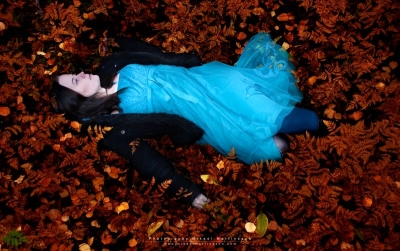Factory of Dreams Interview 2008

Doctor T: Factory of Dreams seems to be a bit of a change from your usual production interests. How did the idea for this project come about, what was the challenge and what prompted you to this direction?
Hugo: You're absolutely correct, it is different, but it was a conscious move to jump in this direction with Poles. Some people asked me if I was composing for Project Creation and the music started sounding differently, thus the reason to make another project, but no, it was really what I intended to do. So, when I completed Project Creation's latest cd 'Dawn on Pyther', the 2nd album from my sci-fi saga, I was a bit tired of all the complexities involved in the production of that music. I truly needed something fresher, something lighter but at the same time I didn't want to move completely away from my original music genre, that is the prog and metal approaches. This said, I started composing very spontaneous music during a week or so and came up with several songs that were very ambient driven. Later I decided to incorporate full guitars on those tracks and see what I'd come up with. The sound was certainly different from my usual genre but I must admit I was thrilled and hypnotized by it. It was a very powerful bass sound and a female voice was needed to make a great contrast with that, so the search for someone with a unique voice began.
With this project, I wanted something bordering the progressive genre and the metal genre, but never ever being just one of these genres in full strength. Most of all, to me melody is always the key and while composing, I took care of the melodic parts most of all. Melody is what people remember and what music is made of mostly, so the challenge for me was to be able to focus more on melody and on production than complex material. Would I be able to make a more simple approach to music and make it very appealing and still have a strong sci-fi theme that could speak to the listener? This was the challenge.

Doctor T: Could you talk a little to the way you actually produced the music here, how did you go about it, and especially, how did you work with Jessica?
Hugo: This was by far the easiest album for me to produce and I think that 'easy does it', because it also most possibly the best sounding album I've done so far. I began with the song structures and once that was done I recorded the guitars, bass, drums and also began sending the music to Jessica. The mixing process went well, and I tried to enhance everything as much as possible. The mastering was handled by Chris Brown.
I found Jessica on the Internet and I asked her if she could record a demo for track 1, Transmission Fails, so I could just confirm what I already knew, that she was right for this music. She’s a really nice person, and we get along very well. We began working on December 2007, and the album was released on June 2008. This means that we worked fast enough to have it before summer.
We're two musicians adapted to the current means, that is the Internet, so it was great working with her over this technology. I would send her the music, plus my ideas for vocals melodies, lyrics and such, and she would develop her own melodies from my initial ones. In case something could be enhanced I would suggest that to Jessica. It was really great. Fortunately Jessica’s vocals came out naturally most of the time, which can only be a good thing; a good match between the music and the vocals. Furthermore, while Jessica was recording the vocals I was refining the mixes and recording more additional guitars and during this time I was also working with the designer on the illustrations and also exchanging ideas for the vocals with Jessica.
Doctor T: Jessica, there are some here who are familiar with your background but could you go over it a little, what other projects have you been involved with?
Jessica: I’ve been writing music myself since I was 17, in a project that I call Once There Was. So far I’ve recorded three demos with this project and I have a fourth and a fifth one coming, it will just take some time since everything is done in the home studio I share with my boyfriend. I’ve also collaborated with other demo artists every now and then, recording vocals for a few tracks over these past years. I’m a member of Beto Vazquez Infinity who has just released the CD “Darkmind”, on which you can find my vocals on four tracks plus back-up vocals on a fifth track. A few people might also know me from Nightwish’s crew, where my job is to translate the band’s website to Swedish.Doctor T: Clearly, there is a fantasy, science fiction theme to much of your production, could you talk to that interest?Hugo: I think I'll never be able to get away much from science-fiction, whether approaching a more fantasy theme or connecting sci-fi with down-to-earth subjects. Sci-fi can bring up great ideas, social problems and do that in a very profound and imaginative way. Imagination is one of the best things that we have and simply talking about common subjects isn't my thing, so, I prefer to imagine possible scenarios and then bringing common themes to the set. This is exactly what happens in Poles. I started writing some lyrics, most were about the human mind, how we are capable of the best and the worst things. The album also talks about nature, how nature is a living breathing entity and how it connects with us, and also about our emotions, thus the ‘Piano in the Sea’ that is about loneliness and the connection with water and oceans. All life must have come from the water, so we're deeply connected with it.
Poles is mostly about positive and negative thoughts, how they drive our society. These are then connected to an imaginary machine, the factory of dreams, that is hidden within our planet and sending thoughts and ideas to influence the people. The 'Stream of evil' is where all the emotions flow, it's an overview of the balance between negative and positive.
Another point of the album is that Bad defines Good and vice-versa. At least our human understanding requires both sides to exist. Poles may also be interpreted as an analogy to our brain and our thoughts. But it’s also an insight to the differences between the people and to how everyone should be respected. ‘Sight of a better Universe’ speaks of someone wishing to be in an understanding world or in a different universe. ‘Piano in the sea’, continues part of this theme and is about loneliness. ‘Stream of Evil’ is about the mixed feelings one may have and the contradictory emotions stated on the lyrics. ‘Peace Echoing’ is all about trying to establish Peace in this world, and how nobody cares. Despite this, we try and try and try to spread the Word of peace. ‘Air Powerplant’ is a strange song in terms of lyrics, speaking of an invisible force or machine, that provides Air to the people.
Doctor T: Beyond the obvious science fiction, one could possibly assume there is a deeper, more current theme to some of the titles here. For instance, on Generator of Illusion, you use the lyrics: Lost themselves in a / Senseless war of ideology / Lost in their own insanity. Any message there?
Hugo: Yes, this generator can be a metaphor to our society, how it sells us illusions, and also about governments. We are told everyday that our lives will get better, but we hardly see that and so wonder what's really happening. The Earth is Paradise to some and Hell to others if you will. That particular track is the history of our World, It seems that we as humans cannot live without conflict. I'm not referring to any particular war or conflict, but there's not a moment in our life where somewhere war is not taking place. So, the idea with this song, and with the general concept, is to imagine that our own thoughts are living beings and are sent by this Machine that is really testing us to see how we evolve and react. Perhaps nature does that, who knows… The latest M. Night Shyamalan movie, that was so hardly criticized, does touch this point I believe. The generator of illusions is in Fact Thoughts, positive and negative, but we as humans seem to pay more attention to the negative ones.
There’s of course a great deal of intolerance and hypocrisy in our World, just switch on the TV, and it’s everywhere. The ultimate message with Poles and with this song, is to say that we can have different cultures, different ideas, as long as they're humanely acceptable, and live together. That would be the desired thing, but up till now, it has been impossible.

Doctor T: Any plans on doing anything with this CD beyond the recording, any live performing or movement to another media like the film work you’ve been associated with?
Hugo: That would be great to be able to do with Factory what I’ve done with Project Creation in terms of video. I did the videoclip and the CGI film for my two Project Creation’s cds and they're available on myspace, so I encourage people to check these out at myspace.com/projectcreation.
I'm already working on a 2nd Factory of Dreams album, and I'm thinking about doing something different, but probably won’t be possible to do a video, but maybe a smaller thing, we'll see.
Some of the Poles tracks are also going to be featured on several compilations cds which is also a good thing and the album is receiving airplay on radio...
We're particularly focused on producing albums, so for now, hope the people will enjoy what we have to offer music wise on our Albums. Plus, the artwork on Poles is very important.
The Poles’ Art reflects the music and the concept. Every track is represented in the illustrations, from the Poles' Cover photo showing two sides (Light and Darkness) to Jessica crossing the bridge to the other side of her mind or to the other part of this World. The art had to be very ethereal to match the music. Jessica's character is kind of a ghostly shadow, searching this imaginary land. Two of the best pictures are the Sight of a better universe and the one where the character is like touching the mirror, the window to a better place.
So, for everyone getting the album Poles, please do see the artwork along with the music. Every track has its own illustration.
Doctor T: Jessica, what’s it like working with someone like Hugo and how would you compare it to other production efforts you’ve been involved with?
Jessica: Hugo is a really nice guy, he is very helpful and he had never stressed me although I’ve had so much to do while I was recording these vocals and I myself wished I could have worked faster. The only thing that would make this cooperation nicer is to one day cooperate eye to eye, though we are both a bit mental so I wonder how much sense there would be in doing that, hehe.. Seriously, working with Hugo has been a very lovely experience and I’m happy to keep working with him. He’s very encouraging and he knows what he wants with his music while also giving me lots of space.
Most of the time the people I work with are very lovely, Beto Vazquez is one good example here. Just like Hugo he gives me lots of space and freedom and he’s very nice.
In general I’ve always been allowed to take my time with recordings and I don’t think I’ve really felt that I’m doing a huge effort, singing is something I do as much as possible and as long as the people I’m collaborating with are nice I’m just happy to work with them
Doctor T: What in your background, your previous life experiences, led you to this type of music, this art form?
Hugo: I like most things that are different and imaginative. Living just a normal way of life is not really my thing. So, I keep imagining other societies, other planets and stories and this is how I like to experience my everyday.
I love sci-fi movies, and books, always have. I was very influenced by Steven Spielberg’s movies when I was little, Close Encounters, E.T , but also Alien from Ridley Scott, The Thing by John Carpenter, etc.. I also like astronomy, mysterious things, and all this leads me to expand these ideas in musical form.
Another inspiration was indeed new age music, that introduced me to synthesizers, and to great melodies, so this was a starting point to evolve and incorporate more electric instruments with the music.
Doctor T: Your previous efforts have involved the interaction with a number of musicians; on this one there is only Jessica. How has this proved different and how would you compare the two formats?
Hugo: The purpose of creating Factory of Drams was exactly to narrow the scope and have total control over the music, and have Jessica defining the vocals, So, this gave us plenty of freedom and also a much faster pace of working. Sometimes the simple things are the best and I think that this was the case.
On my Project Creation cds, I usually work with lots of musicians, and although this is difficult to organize, it makes the music very vast and complex, bringing lots of new elements and styles to the compositions. This makes Project Creation an epic project, covering lots of different music genres. But it's also more dangerous, because you don't focus that much on a particular style...
In terms of recording it’s also easier, because basically I just need to receive vocals from Jessica, even though I also worked with Chris Brown on Fretless bass for the ‘Electric boom’ track. On the 2nd album we may have a bit more guests.
Doctor T: Jessica, what was your experience of this production effort, how was it different from other efforts or where was it similar?
Jessica: Since I was recording vocals for a full CD within a limited amount of time it was different from other experiences I’ve had, also because the music was different to what I was used to and I needed to adjust my vocal technique some to fit in with a few of these tracks. When I record stuff for my own tracks I can take all the time in the world since I don’t need to think of deadlines and stuff, but when recording for Hugo I of course did not want him to wait until the end of days, so it was definitely busier than anything else I’ve done so far. But it was a nice busy, not a bad one ;) Music is always so much fun and I would not mind having this as a full-time thing, rather the opposite.

Doctor T: Hugo, one could argue that your style of music is very European in nature. How do you view the American listening public when it comes to music like this?
Hugo: That's a very interesting question and I share that idea. I don't know thoroughly what are the main preferences in the US, but I’m positive that the new rock and punk rock, plus the grunge movement created a new kind of modern sound that is very well accepted by US audience. But there's also a progressive rock and metal market in the US, so, blending these two means that there are people open to new types of music. It’s a question of showing them the music and see what it’s like. But there may be some resistance from mainstream radios and such to airplay this music.
In Europe, and especially the Northern countries, you see lots of new female fronted bands appearing. It's a movement that started with The Gathering, and I recall hearing 'Strange Machines' by these guys and I was completely in love with the style, some 10 years back. Then more bands appeared as we know.
Factory of Dreams takes my view on music, especially the prog atmospheric metal music genre, and blends it with an operatic vocal range. I think that the mix works pretty well and is certainly different from what people are used to hear, just like you mention on your review.
Doctor T: Any interesting plans near term, what’s on the schedule for Hugo Flores?
Hugo: The second Factory of Drams album in on the making so hopefully we'll start recording soon. Some of these songs are becoming different than the ones from Poles, and assuming another kind of structure. So, for the next album expect the same metal atmospherics, however stronger and with more progressive parts. It'll be bigger!
I also want to conclude the Project Creation trilogy and then see where to take my Project Creation. Whether to make a new trilogy or single albums, we'll see.
I also have ideas for a solo album of mine, but that's been idle for now.
Doctor T: Could you compare efforts like this with performing live? What are the plusses and minuses for a performer?
Jessica: I would say it’s pretty different from performing live. When you perform live everything happens now, you can’t sing something over and over again until you have the take that you’re most pleased with. Things might go wrong, you might screw up a note or you might face some other trouble along the way, so that are the minuses, but I guess in the end this is about experience. You learn to deal with this, and I’d say there is no such ting as a flawless performer although many people can come really close to that. The plusses are that you actually get to see people enjoying the music. When recording in a studio I’m either alone or my boyfriend is there to press that “record” button, and that’s definitely not the same as just singing full tracks for people who are there to listen to music they like.
Sonic Cathedral appreciates this opportunity to interview 2 up n coming inspired musicians, the best of luck to you both and check out Factory of Dreams!
